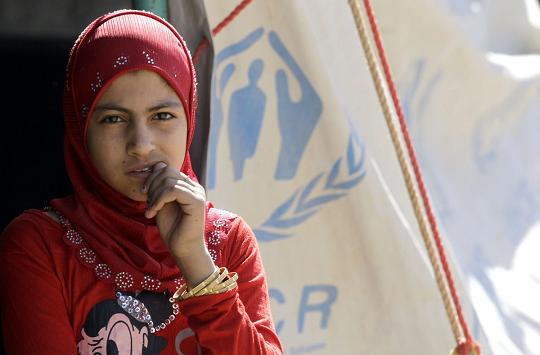
(Photo from Amr Salama)
Amr Salama’s La Moakhza, opened its highly anticipated second edition of the Luxor film festival a few days into the festival, where we had a chance to see it. While he is best remembered for his film about an AIDS patient named Asmaa starring Hend Sabry, his latest effort follows suit in portraying a touching story of a boy growing up.
La Moakhza talks about class difference, the horrors of the national education system and religious intolerance. Salama’s film is ambitious in the scope of issues it touches upon, but it manages to stay afloat and never get too bogged down in any single one. This is not the story of class difference or religious intolerance, but the story of Hany Abdullah. Salama reminds us that we see those issues solely because they are relevant to the protagonist’s journey to inclusion and acceptance.
This is where the film’s greatest strength is; you can rarely criticise the way it discusses sensitive topics because the plot is concerned with the story of Hany and how he deals with his new school more than it is with the situation of Copts in Egypt or gated communities and class differences. This makes for a heart-warming and intricate character journey that is filled with social commentary, rather than the other way around: a naive story told for social commentary.
The film is about Hany Abdullah, an upper-class only child from a Christian family in the suburbs who has to switch from an international private school to a national boys-only school. Ultimately, the film is about his exposure to another Egypt and his struggle to fit in at a new school. As Hany makes the switch, he discovers that being a Christian will disadvantage him further in the school hierarchy and keeps his religion a secret, thanks to an ambiguous name. As he tries to make friends, he is forced to grow up quicker and experience some of the country’s most challenging issues firsthand.
At the Q&A after the screening, Salama said: “The film is about discrimination and acceptance in all their forms. It is not just Hany that experiences these problems. Characters like Amin and Nelly are experiencing them in a different manner.”
These characters are surprisingly nuanced; Hany sees a different side of Amin, a struggling young man, as the plot progresses, and Mo’men, his only friend at the new school, gives an excellent performance and portrays the intricacies of both prejudices and childish goodwill. Others, like Hany’s mother, struggle with their faith, while another suffers from a judgemental society.
Viewing the film in Luxor was an interesting experience, because some of the film’s central themes are specific to Cairo, including class difference between different areas of the city; andthe language and expressions used by the boys at the school speak to a certain audience. For example, some of the humour in the colloquial expressions was lost on local audience members and the dichotomy between a national and a private school is a phenomenon mostly present in cities like Cairo and Alexandria.
Salama doesn’t explore the innocence of children like Erice, or juvenile delinquency like Truffaut, but his film is definitely a step in the right direction. While some audience members might cringe at stylistic elements, like using a song while the plot mysteriously progresses faster, La Moakhza can be moving, funny and insightful. Despite any faults, we hope it marks a further trend of character-driven stories that do not shy away from sensitive issues.


